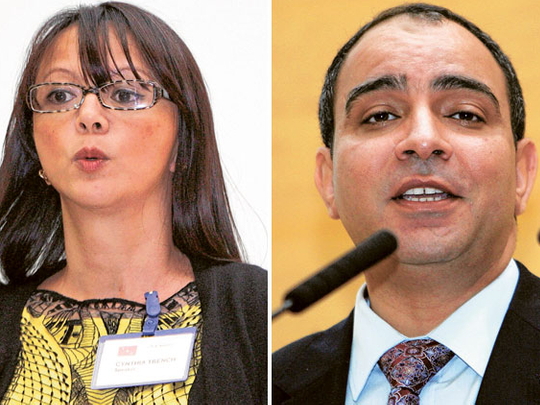
Dubai: "If I were to pass away in the UAE and my bank accounts are frozen, how is my wife to survive if it's going to take time to get a succession certificate? What about my will written in the US?"
As these questions by an Emirates' pilot - among others - were directed to a panel of legal experts at a symposium on asset protection in Dubai this week, not all elicited easy answers.
The panellists, who admitted to a gaping conflict of views on inheritance laws in the UAE, said they would persuade the government to bring about greater clarity on such matters.
"A lawyer can say to you we cannot guarantee you anything because in a civil code country, judges are not bound by judgments of previous cases," said Cynthia Trench, Principal of legal firm Trench & Associates, which organised the symposium at the Emirates Group Headquarters.
"We have a lot of conflicts here because of which courts are giving conflicting judgments, lawyers are giving conflicting advice and the press is giving conflicting articles," she said.
To illustrate her point, Trench referred to different sections of the law and said on the one hand, we can look to the law of domicile of expatriates, Article 17 (1), to determine the distribution of properties or assets. On the other, Article 17 (5) says the laws of the UAE shall apply to wills made by expatriates disposing of their property in the state.
And there's Article 2 (Civil Transactions Code) which says the principles of Islamic jurisprudence shall be relied upon in interpreting these provisions. "What law should we apply?" she wanted to know.
Dwelling on a document issued by the Notary Public on wills for non-Muslims which says, "Write it, Attest it, Keep it", Trench referred to Para 12 which in effect notes that the decision would not be upheld by the competent court.
"What does this mean? There is a lot of confusion," she said, but added that there is "light at the end of the tunnel". "I believe the heads of Dubai Courts will go towards that journey of validating foreign wills quite soon," she said.
Khalid Wahab, Senior Partner, Al Midfa & Associates, said, "The government has to make amendments to avoid conflict between foreign laws and the local laws."
Succession certificate
He said getting a succession certificate could take just three hours if one is willing to accept the Sharia Law, but longer if a foreign law comes into the picture.
To avoid such delays, the panellists said they advise clients without disputes in their families to accept the Sharia Law in total and get a power of attorney from the stipulated heirs in their favour.
They also spoke of clients working their way around the Sharia Law by maintaining individual rather than joint accounts, keeping most of their money outside the UAE's jurisdiction or forming offshore companies to own assets.












